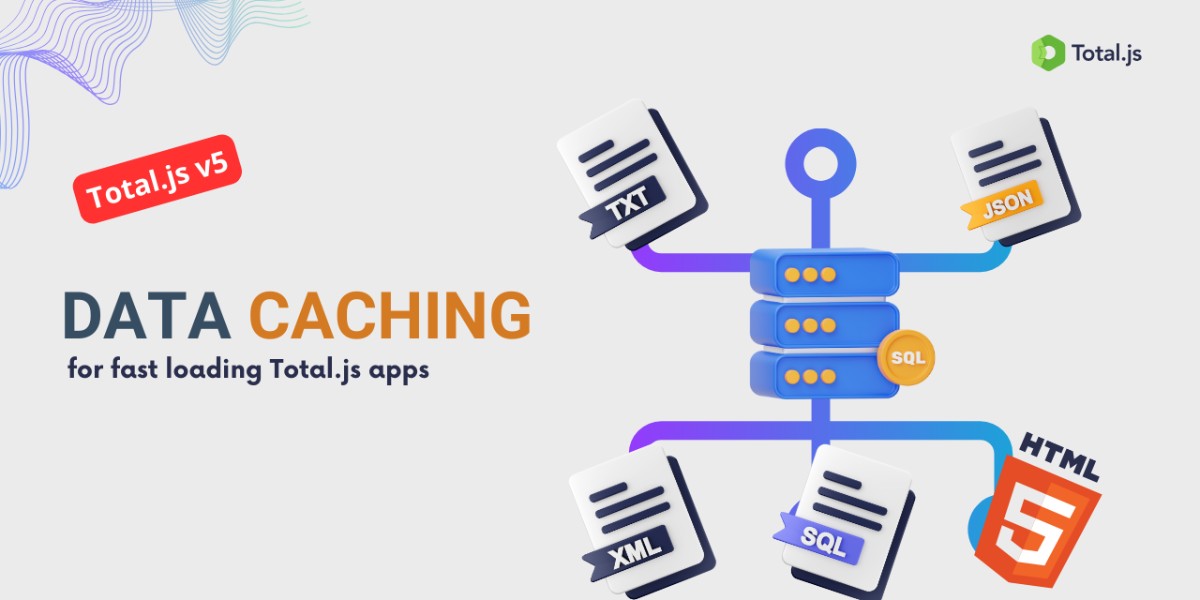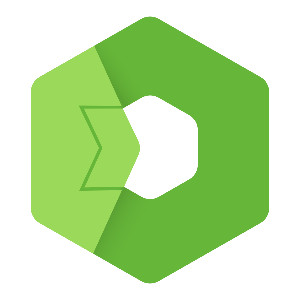Unlock the potential of Total.js with FILECACHE, a powerful file caching mechanism designed to optimize data performance. This feature-rich tool seamlessly integrates into Total.js applications, offering efficient data caching capabilities that enhance speed and efficiency. Discover how FILECACHE simplifies data management, accelerates application performance, and boosts overall productivity, making it an indispensable asset for Total.js developers.

In web development, optimizing data handling and storage is paramount for ensuring smooth and efficient application performance. Total.js, a popular web framework based on Node.js, offers developers a robust set of tools to streamline the development process and enhance application capabilities. One such tool is FILECACHE(), a builtin file caching mechanism designed to ease data retrieval and improve overall system efficiency.
In this comprehensive guide, we'll delve into the intricacies of FILECACHE() within the context of Total.js development. We'll explore its functionalities, advantages, and practical applications, empowering developers to leverage its full potential for optimizing data performance in their projects.
Understanding the FILECACHE Function
FILECACHE() is a feature-rich caching mechanism integrated seamlessly into the Total.js framework. It provides developers with a reliable solution for storing and retrieving data efficiently, leveraging the filesystem to cache data in temporary files. By caching frequently accessed data, FILECACHE() reduces the need for repetitive computations or external requests, thereby enhancing application responsiveness and performance. FILECACHE is a global function within the Total.js framework, facilitating efficient data caching for enhanced application performance. Let's delve into its function and dissect its key aspects:
The parameters and their meanings:
FILECACHE(id, expire, callback, maker, encoding);
FILECACHE accepts several parameters, each playing a vital role in the caching process:
id: Represents the unique identifier for the cached data, enabling differentiation between various cached datasets within applications.
expireSpecifies the expiration time for cached data, measured in milliseconds. After this duration, the cached data is considered outdated and subject to renewal.
callbackA callback function invoked upon completion of the caching operation. Typically, it handles the retrieved data or any encountered errors.
makerThis parameter references a function responsible for generating data to be cached. If the cached data is expired or unavailable, FILECACHE invokes this function to produce fresh data.
encodingAn optional parameter specifying the encoding type for cached data. By default, FILECACHE utilizes JSON encoding for data storage.
How how does it work internally?:
Internally, FILECACHE operates by storing cached data in temporary files within the filesystem. Upon invocation, it verifies the existence and expiration status of the cache file corresponding to the provided identifier. If the cache is valid, FILECACHE retrieves the data from the file and passes it to the callback function. Otherwise, if the cache is stale or non-existent, FILECACHE invokes the maker function to generate new data, updates the cache file accordingly, and then passes the generated data to the callback function.
Some use cases for FILECACHE:
FILECACHE caters to various scenarios where efficient data caching is essential for optimizing performance and resource management. Some common use cases include:
- API response caching: Storing responses from external APIs to minimize latency and reduce server load.
- Database query results: Caching frequently accessed database query results to improve application responsiveness and reduce database load.
- Template rendering: Caching rendered templates or partials to expedite page rendering and enhance user experience.
- Resource bundling: Caching compiled CSS or JavaScript bundles to accelerate page loading times and improve overall performance.
In subsequent sections, we'll explore these use cases further and provide practical examples of FILECACHE implementation within Total.js applications.
Example Usage
Let's explore how to effectively use FILECACHE in practical scenarios within Total.js applications. We'll provide code examples accompanied by explanations to illustrate its implementation.
Example 1: Caching API Responses
In this example:
- We define a function
fetchDataFromAPIto fetch data from an external API. - We use FILECACHE to cache the API response with identifier
'api_data_cache'for 1 minute (60000 milliseconds). - If the cached data is expired or unavailable, FILECACHE invokes
fetchDataFromAPIfunction to generate fresh data. - The cached data or any errors encountered are logged in the callback function.
Example 2: Caching Database Query Results
Here:
- We define a function
queryDataFromDatabaseto query data from a database (e.g., using Total.js' ORM module). - FILECACHE is used to cache the database query results with identifier
'db_query_cache'for 1 hour (3600000 milliseconds). - If the cached data is expired or unavailable, FILECACHE invokes
queryDataFromDatabaseto fetch fresh data. - The retrieved data or any encountered errors are logged in the callback function.
Advantages of FILECACHE
FILECACHE provides several advantages for data caching within Total.js applications:
- Enhanced Performance: FILECACHE significantly improves application performance by reducing latency associated with data retrieval operations.
- Resource Savings: By caching data locally, FILECACHE optimizes resource utilization and reduces computational overhead.
- Improved Scalability: FILECACHE facilitates application scalability by providing a scalable caching solution that seamlessly adapts to changing workloads and data volumes.
- Offline Availability: FILECACHE enables offline availability of cached data, ensuring critical application functionality remains accessible even in scenarios where network connectivity is limited or unavailable.
- Simplified Development: Integrating FILECACHE into Total.js applications is straightforward, thanks to its intuitive API and seamless integration with existing workflows.
Benefits of using FILECACHE for data caching
- Faster response times
- Reduced server load
- Consistent performance across varying workloads
- Enhanced user experience
- Simplified development efforts
Performance improvements and resource savings
- Minimized latency in data retrieval operations
- Optimized resource utilization
- Lower computational overhead
- Efficient handling of increased traffic and data volumes
Potential Pitfalls and Best Practices
Potential Pitfalls:
- Over-caching: Caching too much data can lead to excessive resource consumption.
- Stale Data: Failing to update cached data can result in serving outdated information.
- Cache Invalidation: Inadequate cache invalidation strategies may lead to serving stale or incorrect data.
Best Practices:
- Define clear cache expiration policies to ensure data freshness.
- Monitor cache performance and adjust caching strategies as needed.
- Implement cache invalidation mechanisms to ensure data consistency.
Common mistakes to avoid when using FILECACHE
- Forgetting to handle errors: Always handle errors properly in the callback functions to avoid unexpected behavior.
- Incorrect cache expiration settings: Ensure that cache expiration times are set appropriately to balance data freshness and resource usage.
- Ignoring cache invalidation: Implement mechanisms to invalidate cache entries when underlying data changes to avoid serving stale data.
Best practices for efficient caching with FILECACHE
- Use cache keys that are unique and descriptive.
- Monitor cache usage and performance regularly.
- Implement cache eviction policies to manage memory usage effectively.
Conclusion
FILECACHE emerges as a powerful tool within the Total.js ecosystem, offering developers a versatile solution for optimizing data caching and enhancing application performance. Through the exploration of real-world applications and case studies, it's evident that FILECACHE plays a crucial role in addressing common challenges faced by developers, such as high server load, latency issues, and scalability concerns.
By leveraging FILECACHE, developers can effectively cache data, reduce reliance on external resources, and improve overall system responsiveness. Whether it's an e-commerce website experiencing peak traffic, a content management system serving a large user base, or an IoT dashboard requiring real-time data updates, FILECACHE proves to be a reliable ally in optimizing performance and delivering enhanced user experiences.
The performance metrics and results presented in the case studies highlight the tangible benefits of integrating FILECACHE into Total.js applications. From significant reductions in page load times and API response intervals to improved server responsiveness and scalability, FILECACHE demonstrates its transformative impact on real-world projects.
In conclusion, FILECACHE stands as a testament to the effectiveness of Total.js in empowering developers to build high-performance web applications. Its versatility, simplicity, and efficiency make it a valuable asset for optimizing data caching and unlocking the full potential of Total.js applications in the modern web landscape.
Other posts from Total.js Platform
- 2025-07-01June report 2025
- 2025-06-02May report 2025
- 2025-05-01April report 2025
- 2025-04-24j-Box - Total.js UI component
- 2025-04-14Beekeeping - recording damage caused by a brown bear
- 2025-04-11j-Importer - Total.js
- 2025-04-10The Thurzo House Museum
- 2025-04-02March report 2025
- 2025-03-28j-DataGrid - Total.js UI component part 2
- 2025-03-20j-DataGrid - Total.js part 1

